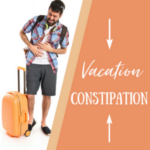When trying to figure out what you should eat, don’t lose the forest for the trees. Don’t get bogged down in the minutia of whether specific food items are “good” or “bad.” Instead, focus on the big picture where the scientific evidence is well established.
We are bombarded with nutrition advice. You “should” eat: low carb, natural, paleo, vegan, gluten free, organic, natural, grass fed, antibiotic free, low glycemic, non-GMO- the list goes on and on. There are movies, books, and websites. Everything sounds so convincing! Worse, each “diet” claims to be the only proper way to eat. It’s enough to make your head explode.
Once you get past the media, you are invariably confronted by the people who try to convince you that only they have the “correct” answer to “healthy” eating. Often these folks are selling a product and stand to make a tidy profit while they “improve” your lifestyle.
Others are just zealots convinced their way must be right because it worked for them. These folks can be pushy and worse, self-righteous. There are the folks who are quick to tell you about all of the awful things about those “other plans” and try to scare you into believing that only their plan is the one to consider.
It really wears me out when someone tries to both convert me to their way of thinking and convince me to persuade others to join their particular nutrition circle.
Don’t get me wrong, I love that people are really interested in nutrition. It’s great that foods like kale, quinoa and pomegranate have become popular. But on the flip side, it’s upsetting that the increased popularity of organic foods has also led to misconceptions about food safety and healthy eating. (It doesn’t have to be organic to be safe and healthy.)
It’s sad to see people being unnecessarily restrictive with their food choices and following bad advice. I’ve had people tell me they don’t enjoy eating anymore because it is too hard and stressful. Others have taken a different tact, not even trying to eat right because it’s too overwhelming to make the right choices.
It is not that hard.
I know it’s confusing. Americans spend over $60 billion dollars a year on weight loss, and a big chunk of that is spent on “snake oil” supplements and false promises.
Adding to the confusion, nutrition advice changes over time. That is because nutrition is a science. As research reveals new substantial evidence, we change our advice. As registered dietitian nutritionists, we never change our advice to clients based on one study. Ethically, we look at the totality of available and reliable evidence. Real evidence. Peer reviewed evidence. Not anecdotal evidence pushed by someone with an economic or political agenda.
Instead of getting bogged down and over loaded with information, focus on what nutrition scientists ALL agree on:
- We should eat fresh fruits and vegetables, whole grains, lean proteins and healthy fats.
- We should not eat too much.
- We should limit added fat, sugar and sodium.
- We should be physically active most days.
- There is not one diet (eating pattern) that is right for everyone. Even Registered Dietitian Nutritionists enjoy many different healthy eating styles. Some are vegan, others enjoy beef. Some drink milk, others don’t.
When I work with people, their preferences and nutrition needs are the focus. I help people meet health goals using scientific evidence, not fads. Feel free to contact me, or ask me questions on facebook.
For more on healthy eating download my free guide, “How to Eat when you have Diabetes & Still Enjoy your Favorite Foods!”
- 17Shares
17


Leave a Reply